Confederate Truths: Documents of the Confederate & Neo-Confederate Tradition from 1787 to the Present.
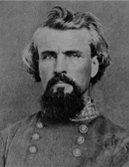

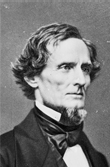
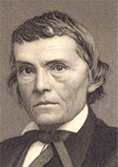

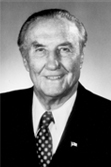
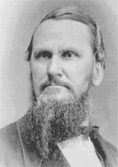
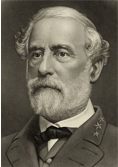
Our Common Heritage 1957
From the United Daughters of the Confederacy Magazine, "Our Common Heritage," by William M. Beard, former Commander-in-Chief of the Sons of Confederate Veterans, 1957, June, pages 17,20-21, 24-25, 38-39.
This article about "Heritage" starts from the Magna Carta and moves down through American history, but finally reaches its point, which is to attack the NAACP and civil rights.
Errors in the original were only corrected where it was felt necessary for clarity and it was fairly clear what the error was.
OUR COMMON HERITAGE
By WILLIAM M. BEARD
As you enter the old Court House in Vicksburg, Mississippi, you read these words, "Those who forget their past have no future."
The Sons of Union Veterans of the Civil War, and the Sons of Confederate Veterans realize the import of these noble words. We have a common heritage and although we were divided for four long, difficult, and bloody years, 1861-1865, we are today American citizens of "an indestructible union of indestructible states," as was said by the Supreme Court in Texas v. White.
It is a high privilege and a great honor to address the Abraham Lincoln Camp, Sons of Union Veterans of the Civil War. When I received your cordial invitation to meet with you tonight, I accepted your hand of warm friendship—the same that General Grant straight from his soldier's heart offered to General Lee at Appomattox.
Both of our organizations—Sons of Union Veterans and Sons of Confederate Veterans—have stressed Patriotism, Devotion to the Principles of Constitutional Government, and Morality as the foundation stones of the American Republic. Tennyson says, "Thru the ages one increasing purpose runs". We believe that our Country is Freedom's chosen land and in that belief we stand united."
While our people have their ancestral origins in every nation of the world, we appreciate the fact that what is now the United States was first settled by sturdy emigrants from England, who brought with them the principles of the English Common law and the Political institutions which had developed, only in England after the Norman Conquest of 1066. The very foundation of our liberties is the Magna Charta of 1215, largely composed by Stephen Langton, Archbishop of Canterbury. In addition to the Magna Charta, our ancestors brought the Bill of Rights of 1628 and the English common law. These documents, together with the Mayflower compact of 1620, the proceedings of the Virginia House of Burgesses in 1619, marked the beginnings of our Republican form of Government.
God has blessed America in many ways. A glance at a map of the United States discloses that the great rivers—Penobscot, Merrimack, Connecticut, Hudson, Susquehanna Delaware, Potomac, James and Rappahannock—all flow from the highlands through the Eastern Seaboard into the Atlantic Ocean.
It was, therefore, impossible for the French in Canada to reach out and destroy the infant and struggling English settlements from Maine to Georgia.
An historical incident of great importance occurred in 1609 when the Frenchman, Samuel DeChamplain intervened with his firearms as an ally of the Algonquins against the powerful Iroquois—the Fire Nations who controlled the lands drained by the Mohawk and the Hudson Rivers. Thereafter the Iroquois barred the French from the eastern seaboard and forced the French explorers and settlers to the west along the St. Lawrence River, the Great Lakes and into the Ohio River Valley. Therefore, geography and the Iroquois gave the English Colonies the opportunity to become strong and self-sustaining. True, there were at various times, French and Indian forays on the English settlements which resulted in much suffering and bloodshed, but they came too late to stem the advancing tide of English Colonial expansion. They were severe enough however to teach our ancestors that their survival depended upon their own efforts and upon their cooperation with their neighbors. The defeat of General Braddock's punitive expedition against the Indians in 1755 at Turtle Creek by the French and Indians opened the western frontiers of Virginia, Maryland and Pennsylvania to horrible Indian massacres.
The failure of British armies to subdue the Indians caused the rugged frontier families to rely upon themselves and their neighbors for protection. Many of the most valiant soldiers of the Revolution came from the Western frontiers of Pennsylvania, Maryland, Virginia and the Carolinas.
They were men who loved liberty and believed with Thomas Jefferson "In questions of power, let no more be said of confidence in man, but bind him down from mischief by the chains of the Constitution."
During the war for American Independence, many of the ancestors of the men who later wore the Blue and the Gray were our most valiant leaders.
As soon as we had achieved our Independence, the thirteen States tended to fall away from each other. The years 1783-1789 are known as the Critical Period in American History. During this "Critical Period", Americans were more interested in Liberty than they were in Union. Our Federal Constitution could not be ratified by the necessary 3/4 majority of the States until the adoption of the first ten amendments. The tenth of which reads as follows: "The powers not delegated to the United States by the Constitution, nor prohibited by it to the States are reserved to the States respectively, or to the people."
When Washington became our First President, he selected as Secretary-of-State, Thomas Jefferson.
The Apostle of Democracy who feared the expansion of Federal power under the implied power granted in Paragraph 18 of Section 8, Article 1, of the United States Constitution, which gives Congress the power "to make all laws which shall be necessary and proper for carrying into execution the foregoing powers, and all other powers vested by this Constitution in the Government of the United States or in any department or officer thereof", would result in the destruction of the Rights of the States and the liberties of their citizens. Alexander Hamilton believed in a strong central government and obtained the passage of legislation which permitted the Federal Government to—(a) Fund the debt of the States and the Congress amounting to $52,000,000 by a bond issue; (b) Assume the debts of the States incurred during the Revolution; (c) Levy excise or internal revenue taxes; (d) Impose a Tariff on imports, and (e) Establish a United States Bank.
Those who supported Hamilton were called Federalists while those who supported Jefferson were first called Anti Federalists, later Republicans and finally they were known as Democrats.
The Federalists believed that the Constitution should be broadly interpreted to give the Federal Government whatever authority it needed to carry out the implied powers granted in Paragraph 18 at Section 8, Article 1 of the Federal Constitution. The democrats believed that the Constitution should be strictly construed to confer upon the Federal Government only those powers granted in paragraphs 1 to 17 of Section 8, Article 1 of the Constitution. The struggles over such issues as the United States Bank, The Tariff, Internal Improvements and Western lands became subordinate to the issues of slavery and State Sovereignty.
The invention of the cotton gin by Eli Whitney in 1793 made cotton raising immensely profitable in the South and increased the demand for slave-labor.
When the Constitution was adopted in 1789, it impliedly recognized slavery by providing that Congress should not prohibit the migration or importation of slaves prior to 1808.
Washington, Jefferson and many leading statesmen in the South were concerned about slavery. The issue of slavery was a corallary of the issue of secession.
In 1794 the so called Whiskey Rebellion of Farmers in Western Pennsylvania was put down by 18,000 militia troops. The Federal Government thereby demonstrated its authority in the face of rebellion. The irregular authority of the Continental Congress was replaced by the legal, but inefficient Confederation. The Articles of Confederation were replaced by the Constitution adopted in 1789.
Was the new Constitution a compact—an agreement among eleven states, or was it an instrument for the government of the whole people?
The Virginia Resolutions prepared by Madison and the Kentucky Resolutions prepared by Jefferson in 1789 stated that the Union was a compact to which the States were parties that "each party has an equal right to judge for itself as well of infractions as of the mode and measure of reddress".
The Alien and Sedition Acts and some other federal statutes were declared by Kentucky "not law ... void and of no effect". The other States were called upon to unite in so declaring them void and in protesting to Congress.
These Resolutions set forth the "compact" theory of Government. A reasonable inference from these resolutions was that if the Federal majority continued to override the Constitution the states must take more decisive action.
The second series of Kentucky resolutions adopted in 1799 declared inter alia that nullification of all unauthorized acts is the rightful remedy.
In protest against the War of 1812, a report was made to the Massachusetts legislature on February 18, 1814, which contained a declaration taken almost verbatim from Madison's Virginia Resolution of 1798 that "whenever the national compact is violated and the citizens of the State are oppressed by cruel and unauthorized laws this legislature is bound to interpose its power and wrest from the oppressor his victim".
On December 15, 1814, delegates from Massachusetts, Connecticut and Rhode Island, with unofficial representatives from New Hampshire and Vermont assembled at Hartford, Connecticut. After a session of three weeks, the Hartford Convention published a formal report. They declared that the Constitution had been violated and that "States which have no common umpire must be their own judges and execute their own decisions." They submitted a list of proposed amendments to the Constitution intended to protect a minority of States from aggressions on the part of the majority. Finally, they submitted as their ultimatum that they should be allowed to retain the proceeds of the national customs duties co1lected within their borders. Behind the whole document was the implied intention to withdraw from the Union if this demand was not complied with."
To comply was to deprive the United States of its financial power and was virtually a dissolution of the Union. Before the delegates could present this powerful remonstrance to the Congress, peace was declared between the U.S. and England.
Josiah Quincy of Massachusetts declared in the House of Representatives when it was considering the admission of the first state from the Louisiana Territory: "It is my deliberate opinion that if this bill passes, the bonds of the Union are virtually dissolved; that the States which composed it are free from their moral obligations; and that, as it will be the right of all, so it will be the duty of some to prepare definitely for a separation, amicably if they can, violently if they must."
Even as late as the period of the Missouri Compromise "the Union was still in some respects regarded as an experiment" and speculations about the advisability of dissolving it did not appear to the popular mind either "politically reasonable or morally heinous".
The great debates in the United States Senate on the issues of admission of new states, the Tariff, Internal Improvement, the United States Bank, the extension of slavery in the new States and Territories participated in by Webster, Hayne, Clay and Calhoun, failed to rebut the argument for State sovereignty, the major premise of Calhoun's argument for nullification—the right of a State to declare a law of the United States null and void by act of her own legislature and remain in the Union while denying the Validity of its statutes.
Henry Clay, the great Compromiser or the Pacificator, tried to reconcile the widely divergent views.
The great issue of secession was not settled in any legal tribunal, but by the arbitrament of four years of sanguinary conflict between the armies of the United States and those of the Confederate States.
The Horrors of the War Between the States—(I use this term by reason of the fact that the Congressional Record of March 2, 1928, reports Senate, Joint Resolution No. 41, wherein Congress recognized the titled "War Between the States" as proper. It was in fact a war waged between two organized governments)—were almost equalled in the South by the happenings during that Tragic Era known as Reconstruction. Every American should read, "The Tragic Era" by Claude Bowers.
The withdrawal of Federal Troops from the Southern States by President Hayes in 1877 marked the end of Reconstruction and the beginning of a new era. With the advent of the Spanish American War in 1898, many former Confederate Army officers donned the Blue of the United States Army. Fitzhugh, Lee, Rosser, M. C. Butler, Fighting Joe Wheeler were four outstanding U.S. Army officers in our hundred days War with Spain.
Thereafter, most of the old bitterness between North and South faded away and in World War I and World War II, descendants of the men who wore the Blue and of those who wore the Gray fought shoulder to shoulder on the Battlefields of Europe and on the islands and the waters of the Pacific.
Today we are in fact "an indestructible Union of indestructible States". As Americans, we face challenges from within and from without.
At the Eighth Annual Conference of State Chief Justices held in Dallas in the late summer of 1956, a number of Chief Justices from Northern and Southern States warned that American liberties are imperiled by the United States Supreme Courts usurpation of legislative power and by the Federal Governments, increasing intervention into the private affairs of citizens. Chief Justice Robert L. Dell of Rhode Island, is reported to have said, "I think it can be fairly said that our Constitutional farmers, in the light of present day affairs, would have difficulty recognizing their creation".
Chief Justice William H. Duckworth of Georgia attributed the Supreme Court's "usurpation of more and more power for the Federal Government" to the appointment of many Justices with little or no judicial experience and often with no practical law experience. "The United States Supreme Court has invaded every state and every precinct. They use the welfare clause of the Constitution, but they concentrate on the word 'welfare' and forget the word 'general'. They held any clique they want to help, including labor. Other Chief Justices pointed out that the welfare clause of the Constitution has been the basis for a vast expansion of Federal power.
It was pointed out that, in cases upholding the social security act, the Supreme Court established the principle that the power to tax and the power to spend for the general welfare are co-extensive and may be used for purposes outside of the field of Congressional regulation.
For more than twenty years the left wingers ceaselessly and sedulously have tried to fool the American people into the belief that the States' Rights was an encumbering hangover from our 18th century rural society.
In the process of centralizing the Federal power in Washington in violation of the principle of States' Rights as guaranteed in the Tenth Amendment, the American people have been forced to pay too large a share of their earnings to the income tax collector in order to subsidize by outright gifts all the socialistic governments on earth. In the prodigality of our gifts we have not only rolled up our national debt to the point where it now exceeds the value of all the tangible property in the country, but we have made it practically impossible for the honest American taxpayer to adequately provide the savings necessary to educate his children and support him in his illness or old age.
The federal income tax must be reduced and in order to effect such reduction we want less and not more of Federal Government. Each new president promises economy and then spends more money than his predecessor.
We hear much about the necessity of Federal aid to education. We do not need Federal aid, but we do need additional funds for education, and these funds should be made available by depriving the Federal Government of the right to levy estate and gift taxes. The taxes should be imposed by the States. Under the reserved powers guaranteed in Article X, the States and not the Federal Government have the power to provide and maintain schools.
That means that neither Congress or the Supreme Court has power to control education. The Supreme Court is given power to construe the Constitution, not to amend it.
Since the Supreme Court decision of May 17, 1954 reversed what had been the Supreme Law of the land for seventy-five years and declared unconstitutional the laws of seventeen states under which segregated school systems were established, the thinking people have been aroused from their lethargy in respect to States' Rights. While the decisions of the Supreme Court must be accepted by the Courts of the United States and by the States, they need not necessarily be accepted by the Court of public opinion.
When a Justice of the Supreme Court dissents from the opinion of his fellow Justices, he impliedly criticizes them.
One hundred representatives of the people in the United States Congress have issued a "manifesto" criticizing the Supreme Court's decision of May 17, 1954. A precedent for such criticism arose after the Dred Scott decision in 1875. Abraham Lincoln advocated defiance of the Supreme Court in these words: "The people—the people are the rightful masters of both Congresses and Courts—not to overthrow the Constitution, but to overthrow the men who pervert it."
Mr. Lincoln criticized the Supreme Court declaring the decision erroneous and pledging the Republican Party to "do what we can to have it overruled." If the Supreme Court can usurp the right of the States to regulate education, it can usurp other powers reserved to the States. Supreme Court decisions should be grounded in legal precedents, and not in psychological and sociological concepts.
Thomas Jefferson foresaw that in the three branches of the Federal Government, the Supreme Court was the Achilles heel and it could some day act like "a thief in the night" to steal away the basic rights and liberties of the people.
The problem of desegregation must be solved by the people of the South. People who live in the North should keep hands off in this crisis in the Southern way of life.
The tactics of Representative Adam Clayton Powell and of the N.A.A.C.P. have caused intense racial tensions in the Southern States.
Where before May 17, 1954 there was harmony between the white people and the Colored people in the South, we now have uneasy racial tensions.
Education, understanding, patience restraint and living the Golden Rule are needed to eventually solve the racial problems in the South.
Today with respect to the menace of Communism we stand at Armageddon. In this conflict the Sons of Union Veterans and the Sons of Confederate Veterans are firmly allied.
Communists, Neo Communists, Reds, Pinks and Left Wingers are not in our ranks. Their philosophies, beliefs, and activities are alien to our principles. We stand solidly upon the principles of our Federal Constitution, under which we have become the not only the most powerful and richest nation in the world, but the nation of opportunity for service to our fellowman.
On National and International issues the Sons of Union Veterans and the Sons of Confederate Veterans are in close harmony.
We would like to see the Bricker Amendment added to our Constitution and thereby restore the Treaty ratifying power to the Senate where it belongs.
With you, we believe in a drastic reduction of the amount of foreign aid we have been scattering abroad.
The Federal Government has no inherent right to waste the hard earned dollars of its taxpayers as it has been doing for 16 years.
The recommendations of the Hoover Commission should be translated into action by enacting the necessary legislation. "Bureaucrats die, they never surrender."
Both of our organizations are firmly opposed to any "Watering down" of the provisions of the McCarran Walter Act.
We need better, not more immigrants, who can and will assimilate the American Ideals and the true American way of life.'
We should steadfastly oppose the admission of "Red China" into the United Nations and we hope the U.N. will furnish fewer words, more action. We urge upon our schools, colleges and Universities, their privilege and obligation to install into the minds of their students, not only learning, but morality, patriotism and love of the principles of Constitutional Government.
We firmly believe that one reason for much juvenile delinquency today is grounded in the fact that many of our young people have no worth while ideals. It is the opportunity of those who deal with young people to present to them ideals of good citizenship and lives of service as personified by the great and noble men North and South who have given themselves and their great abilities to make America "The Land of the Free and the Home of the Brave".
Ours is a great inheritance. As descendants of men who wore the Blue and the Gray, we must be leaders and examples of courage, patriotism, morality and of self sacrifice. Our Country—America — needs our leadership and our abilities.
To be a member of the Sons of Union Veterans or of the Sons of Confederate Veterans is not only an honor, but it is a challenge:—To live up to the ideals; the deeds, and the sacrifices of our ancestors who wore the Blue and the Gray. Are we worthy of them? Let us ask ourselves that question. Do we attend our Camp meetings? Do we support our officers? Do our lives reflect our ideals?
On April 27, 1948, I participated in the ceremonies at General Grant's Tomb, in New York, on the occasion of his birthday celebration.
On Sunday, May 23, 1956, the New York Camp, 985 S.C.V., held Memorial Exercises in Cypress Hills National Cemetery, Brooklyn, where 3000 Federal and 460 Confederate soldiers sleep side by side. Hundreds of flags—American and Confederate, were placed on the graves. Children from a Brooklyn Junior High School joined "Children of the Confederacy" in strewing flowers over the graves. The New York Times sent a special correspondent, Miss Asbury, to report the ceremonies and The Times carried a most interesting account of the ceremony in its issue of May 24, 1956.
When Albert Woolson, last surviving soldier of the 2,779,304, who wore the Blue, "passed over the Bridge where angels take the toll", a beautiful floral tribute was sent in the names of the three Confederate Soldiers who are the last survivors of the 600,000 who wore the Gray of the Confederate States of America. "With deep sorrow and in loving tribute to Albert Woolson, last surviving veteran of the Union Armies.
"The brave die never; in death, they but exchange their Country's arms for more—their Country's heart."
Walter W. Williams, C.S.A. Franklin, Texas
John Sailing, C.S.A. Ft. Blackmore, Va.
William Lundy, C.S.A. Laurel Hill, Florida
Rear Guard of the Confederate Armies"
C.S.A. Veteran Williams is 114 years old.
C.S.A. Veteran Sailing is 109 years old.
C.S.A. Veteran Lundy is 108 years old.
Tonight as we meet together let us realize that we have much more in common than we have in difference.
The Collect for All Saints Day reads: "We are encompassed by so great a cloud of witnesses". We are sure that the spirits of Abraham Lincoln, Jefferson Davis, Ulysses S. Grant, Robert E. Lee, George G. Meade, Thomas Jonathan Stonewall Jackson, George B. McClellan, Nathan Bedford Forrest, Davis G. Farragut and Raphael Semmes are in our midst. They say to us, "Look to the Rock from whence you are hewn and to the pit from which you were digged." Let us obey God's Command to Joshua, "Be Valiant", so that by our words and by our deeds "The Government of the People, By the People and for the People shall not perish from the earth."
William M. Beard,
Past Commander-in-Chief, Sons of Confederate Veterans,
66 Elm Street, Westfield, New Jersey.
Sons of Union Veterans of the Civil War
Bloomfield, N. J. November 17, 1956